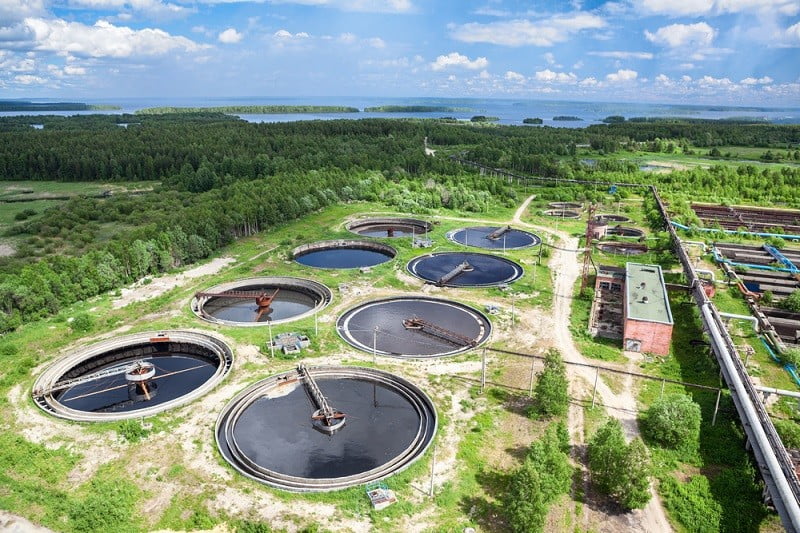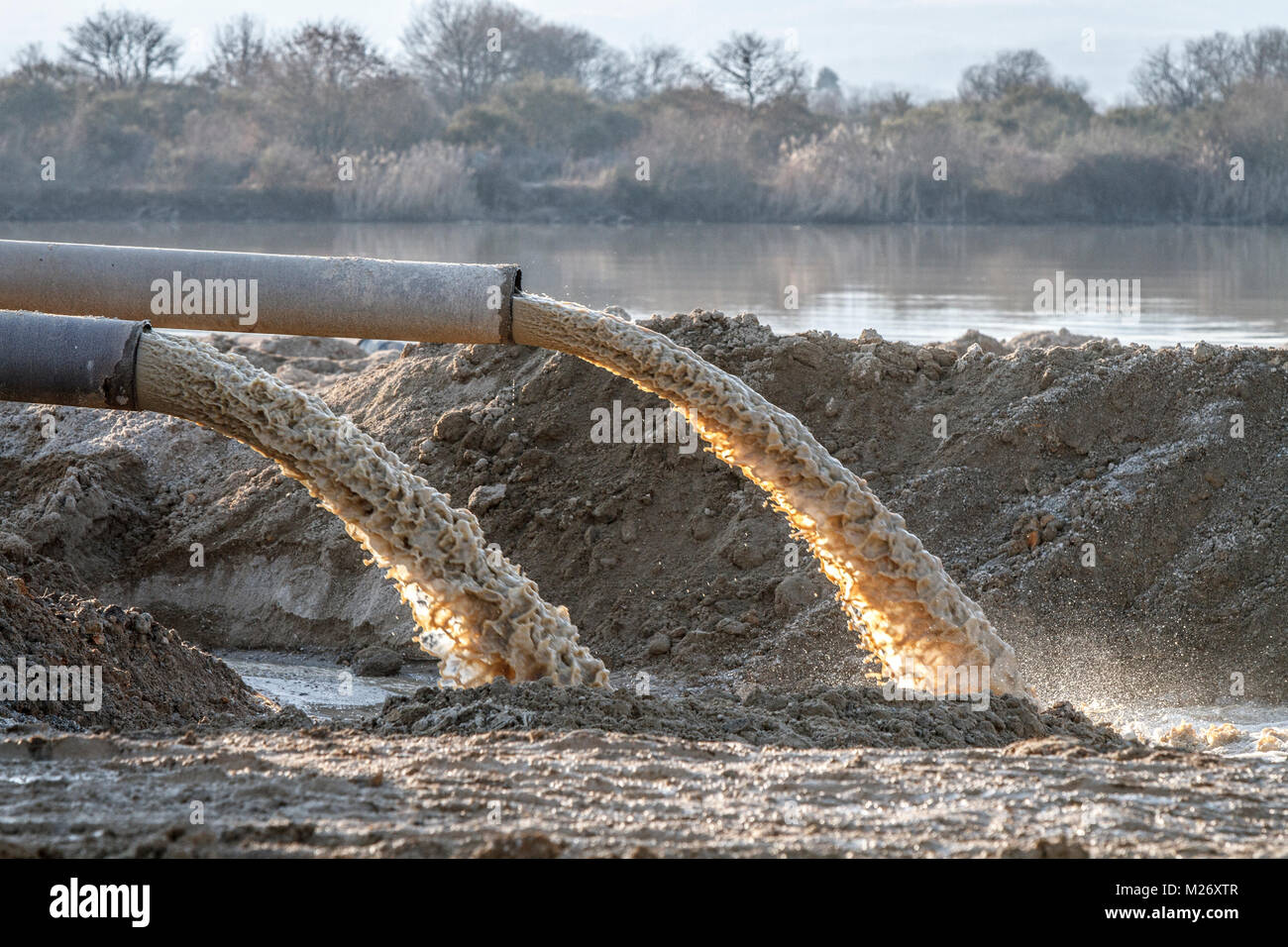Leading Industrial Wastewater Treatment Solutions: Guaranteeing Conformity and Efficiency
Leading Industrial Wastewater Treatment Solutions: Guaranteeing Conformity and Efficiency
Blog Article
Understanding the Comprehensive Process of Fluid Waste Disposal: Finest Practices and Environmental Influence Considerations
The administration of liquid waste disposal is a diverse concern that requires a detailed understanding of various finest practices and their associated environmental influences. From the types of liquid waste produced to the techniques employed for collection, therapy, and final disposal, each step plays a vital role in guarding communities and public health and wellness.
Sorts Of Liquid Waste
Understanding the various kinds of fluid waste is important for efficient administration and disposal methods. Fluid waste can be generally categorized into several types, each calling for special handling and therapy methods.
Industrial liquid waste often contains dangerous products, consisting of heavy metals, solvents, and chemicals, created throughout producing procedures. These wastes require stringent governing compliance to shield human wellness and the environment. Domestic fluid waste mostly describes wastewater created from homes, consisting of sewer and greywater, which, although less harmful, can still present considerable risks if improperly managed.
Agricultural fluid waste, consisting of drainage from farms, commonly includes fertilizers and pesticides that can cause ecological destruction otherwise dealt with properly. Medical liquid waste, generated from healthcare centers, consists of infected liquids such as physical liquids and chemicals, requiring specialized disposal methods to avoid infection and environmental contamination.
Finally, oil and oil waste, commonly produced by dining establishments and auto industries, can cause extreme obstructions in drain systems otherwise handled correctly. Understanding these categories assists in targeted approaches for therapy, compliance with laws, and efficient disposal methods, inevitably advertising environmental sustainability and public wellness safety and security.

Collection Techniques
Effective collection approaches are vital for the proper monitoring of liquid waste, ensuring that it is collected safely and successfully before therapy or disposal. Different strategies are utilized depending on the sort of liquid waste produced, the quantity, and the particular characteristics of the waste.
One usual method is the use of devoted collection containers or sumps, which are developed to record fluid waste at the source. These systems frequently include pumps that facilitate the transfer of waste to larger storage containers or therapy facilities. Furthermore, mobile collection devices equipped with vacuum cleaner technology are utilized in circumstances where waste is created intermittently or in hard-to-reach areas.
For commercial setups, closed-loop systems can effectively minimize leakages and spills, permitting the healing and reuse of fluid waste. It is likewise crucial to train workers on correct collection protocols to alleviate threats connected with hazardous materials.
Additionally, carrying out routine maintenance timetables for collection tools ensures ideal efficiency and safety. The assimilation of advanced tracking systems can improve collection efficiency by providing real-time data on waste levels and potential hazards. On the whole, effective collection approaches are fundamental to lasting fluid waste administration techniques.
Treatment Processes
Treatment procedures play a crucial function in the monitoring of fluid waste, transforming possibly harmful products into safe effluents or multiple-use resources - liquid waste disposal. These procedures can be generally categorized right into physical, chemical, and biological methods, each customized to address specific pollutants present in the waste check that stream
Physical treatment techniques, such as sedimentation and purification, work by removing put on hold solids and particulate matter. These strategies are often the first step in the treatment chain, successfully minimizing the lots on subsequent processes. Chemical treatments entail the usage of reagents to neutralize harmful substances, speed up heavy steels, or oxidize natural pollutants, thereby boosting the safety of the effluent.
Organic treatment procedures, including activated sludge systems and anaerobic digestion, exploit on the natural capacities of microorganisms to weaken organic matter. These approaches are particularly efficient for wastewater having biodegradable toxins. Advanced therapy technologies, such as membrane filtering and advanced oxidation processes, are increasingly utilized to achieve higher levels of purification.
Including a combination of these therapy methods not just ensures compliance with regulative requirements however also promotes ecological sustainability by recuperating useful sources from fluid waste.
Disposal Options
Exactly how can companies guarantee the liable and safe disposal of fluid waste? Efficient disposal choices are crucial for safeguarding public health and the setting. The main techniques consist of land disposal, therapy, and incineration followed by discharge into local wastewater systems.
Land disposal involves the careful containment of fluid waste in assigned landfills, ensuring that it does not seep into bordering dirt or water. Incineration, on the various other hand, topics fluid waste to heats, converting it into ash and gases, which need appropriate filtration to minimize emissions. This technique appropriates for contaminateds materials that can not be treated with standard ways.
In situations where liquid waste can be dealt with, organizations may go with biological or chemical treatment processes to counteract hazardous components before releasing the dealt with effluent into municipal discover this systems. This route typically aligns with regulatory requirements, making certain that the effluent meets safety and security standards.
Eventually, organizations need to perform extensive analyses of each disposal choice to establish its feasibility, thinking about factors such as waste composition, governing compliance, and prospective threats to wellness and the environment. By picking proper disposal approaches, organizations can add to a responsible waste administration method.
Ecological Impact
The ecological impact of fluid garbage disposal is a crucial consideration for organizations looking for to decrease their eco-friendly impact. Incorrect disposal techniques can cause significant contamination of water sources, soil degradation, and adverse results on local ecological communities. As an example, hazardous liquids can seep right into groundwater, posing threats to alcohol consumption water materials and aquatic life. In addition, the discharge of untreated or improperly treated waste into surface waters can lead to eutrophication, bring about oxygen depletion and the subsequent fatality of fish and other organisms.

To alleviate these influences, organizations must embrace ideal practices such as applying rigorous waste therapy processes, advertising recycling and reuse, and adhering to regulative criteria. By taking a proactive method to liquid waste monitoring, entities can significantly reduce their ecological impact while supporting sustainable growth goals. Ultimately, a detailed understanding of the ecological impacts related to fluid waste disposal is vital for educated decision-making and liable stewardship of natural deposits.
Final Thought
Efficient monitoring of liquid waste is important for securing ecological stability and public health and wellness. Ultimately, a comprehensive understanding of liquid waste disposal not just minimizes environmental impacts but likewise cultivates a commitment to liable source monitoring and ecological stewardship.
The administration of fluid waste disposal is a multifaceted issue that calls for a complete understanding of different best methods and their associated environmental effects. From the kinds of fluid waste generated to the methods used for collection, treatment, and final disposal, each step plays a vital function in protecting environments and public health and wellness.The ecological influence of liquid waste disposal is an essential factor to consider for companies seeking to lessen their eco-friendly footprint. Ultimately, a detailed understanding of the ecological influences connected with liquid waste disposal is vital for educated decision-making and liable stewardship of natural resources.
Eventually, a thorough understanding of liquid waste disposal not only reduces environmental over here effects however likewise cultivates a dedication to accountable source management and environmental stewardship.
Report this page